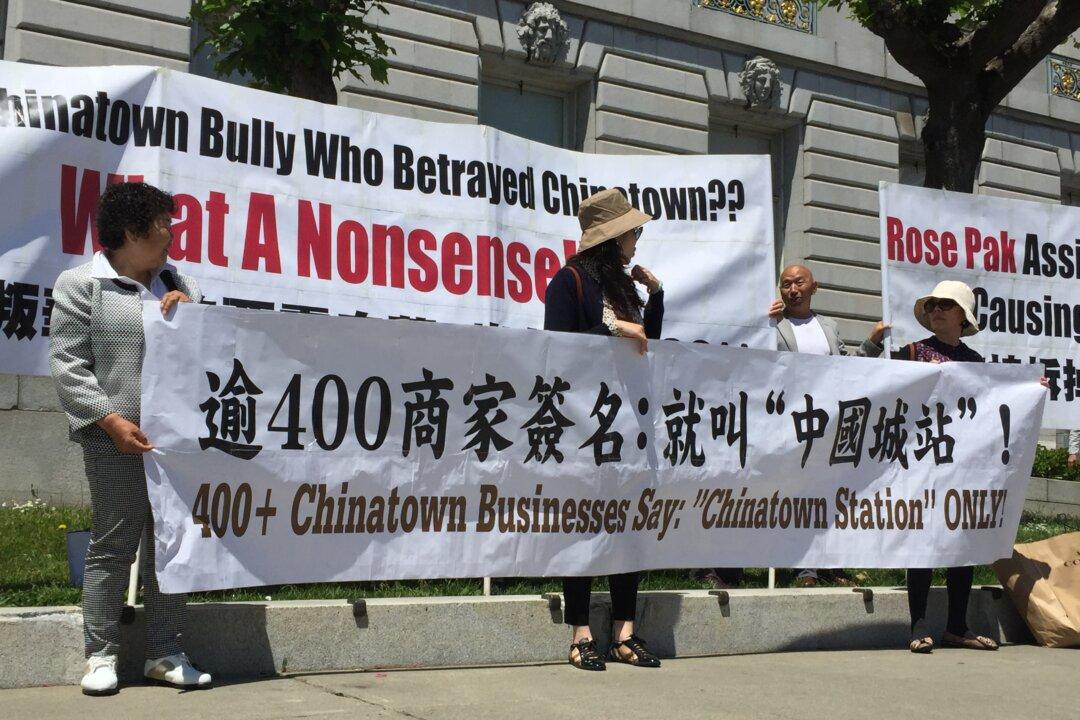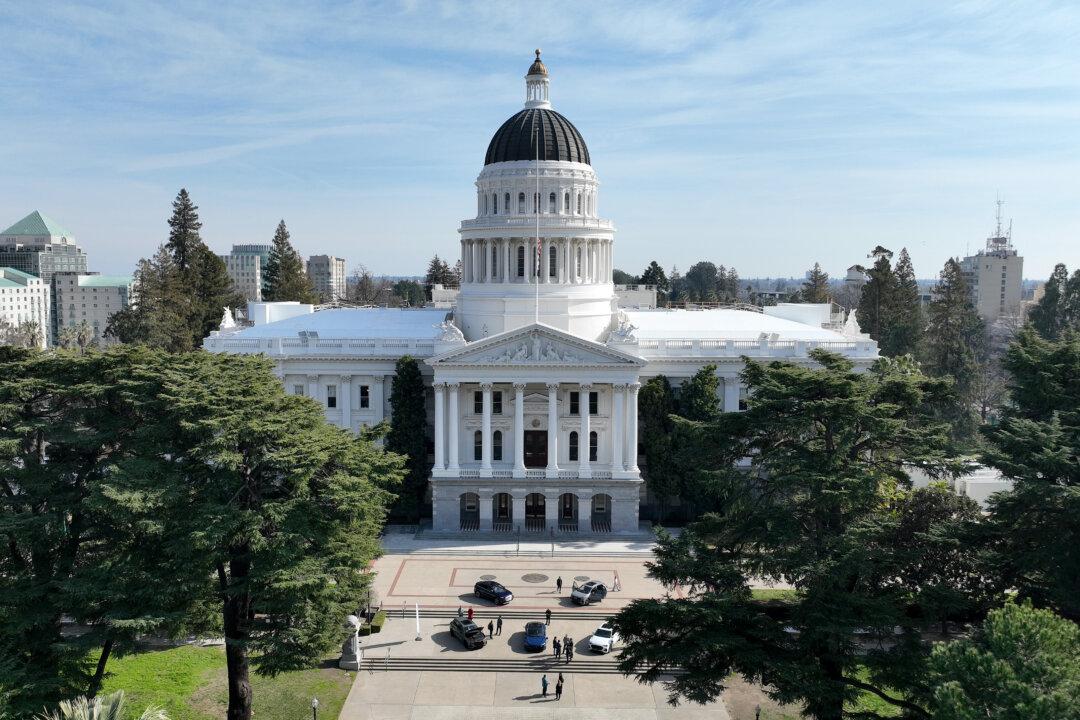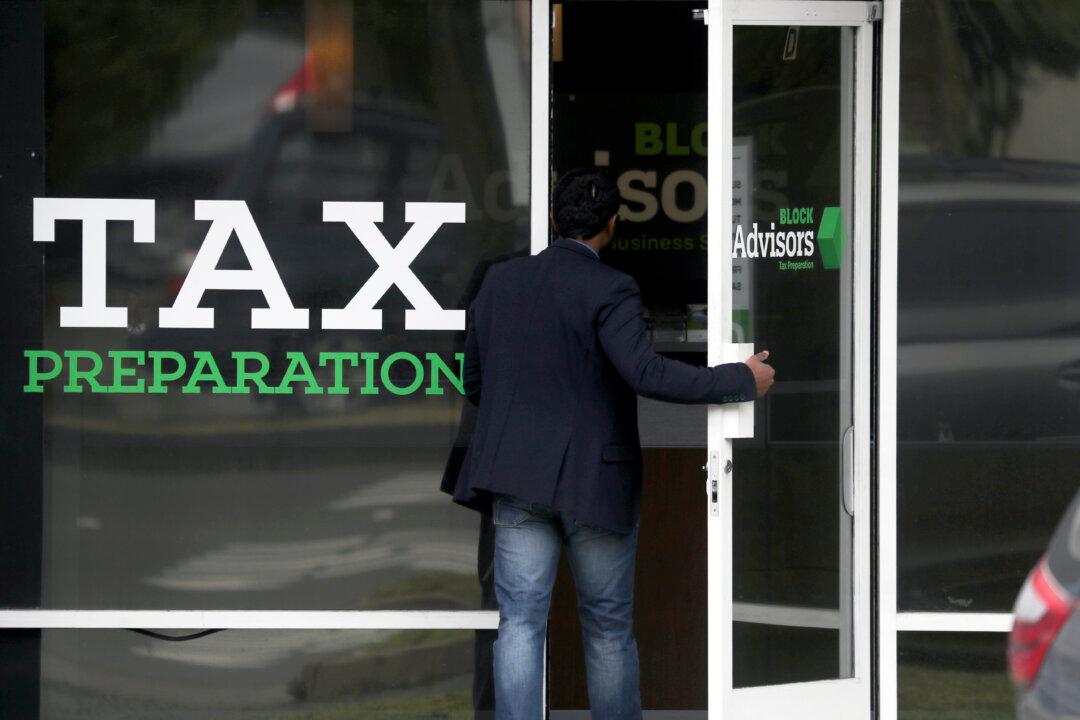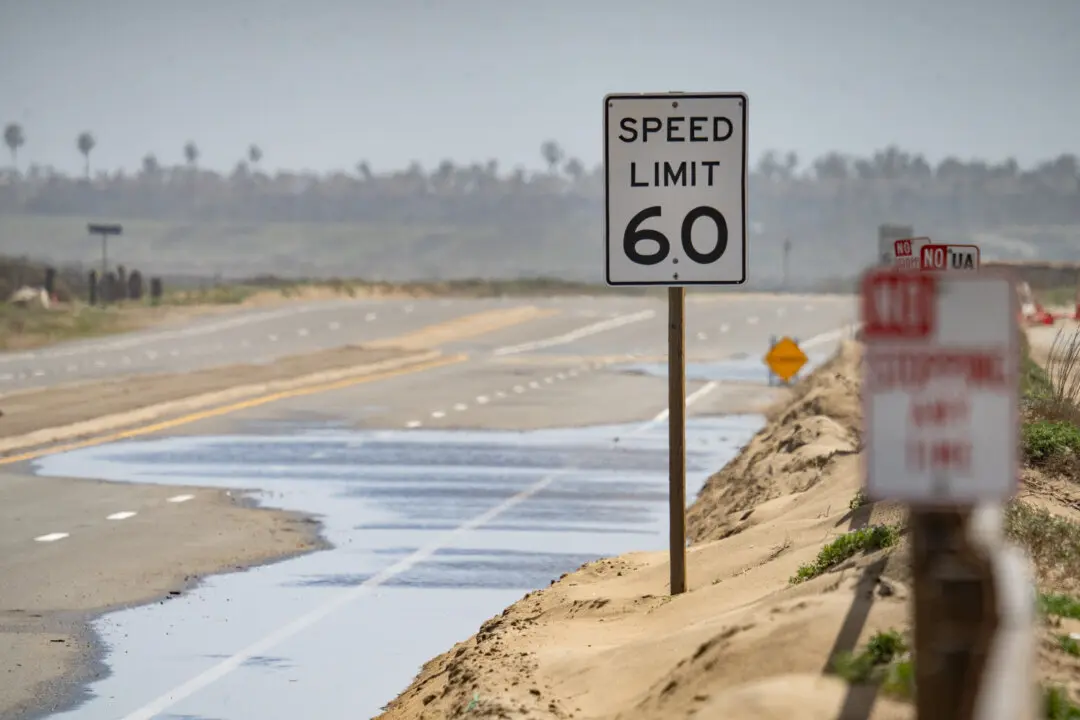SAN FRANCISCO—On June 4, the San Francisco Municipal Transportation Agency (SFMTA) and Board of Supervisors held concurrent meetings to discuss whether to name the new Chinatown subway station after the late Rose Pak.
Pak was a political power broker who was infamous for defending communist China’s human rights abuses. As a result, the proposal to name the station after Pak has caused controversy.
Hundreds of people showed up at San Francisco City Hall to voice their opinions on the contentious naming issue.
Prior to the start of the meetings, a group of people wearing red shirts gathered on the steps of City Hall to voice their support for the naming.
The Epoch Times attempted to interview some of the people in red shirts, but some individuals revealed that they did not know what was going on. Many were students, employees on lunch break, or elderly people who had received fliers promising free food. They explained that they were standing on the steps of City Hall in exchange for free sandwiches and a T-shirt.
Meanwhile, a group of people who are against the use of Pak’s name for the subway station silently held signs on the side, expressing their opposition.
Meeting Outcome
During the meeting, over 100 individuals explained their reasons for opposing the use of Pak’s name.However, after a five-hour session of public comments, the Board of Supervisors voted to pass the resolution. All 11 supervisors chose to support supervisor Aaron Peskin’s resolution to use Pak’s name.
Multiple individuals explained that they do not want Pak’s name to be part of the subway station’s name because Pak openly defended China’s human rights crimes, such as the Tiananmen Square Massacre and the persecution of the spiritual discipline Falun Gong.
A number of speakers recounted their stories of being persecuted by the Chinese Communist Party (CCP) and how they escaped to the United States to seek safety and protection.
Speakers described the CCP’s use of electric shock devices, beatings, and other forms of physical and mental abuse. After arriving in San Francisco, they faced more assaults by Pak and her associates.
Allen Zheng, a company CEO, said: “Different from how the media or certain politicians describe Rose Pak, she’s not a respected, honorable figure of Chinatown. She is controversial. People have to overcome their fear to come here and tell you what they think when it comes to this naming decision.”
Peskin explained that the reason he made this initiative was to recognize Pak’s efforts in helping raise funds for the subway project. However, speakers pointed out that the subway station funding did not come solely from Pak’s efforts, as the aid and support of the community and federal representatives and senators were what secured the funds.
According to FBI archives, Pak was investigated twice, once for illegal housing purchases and another time for her ties with the CCP. She was known for eating food and getting haircuts without paying for them, according to Chinatown business owners.
Chinatown residents also provided the Board with a copy of a petition with over 400 signatures from residents and business owners who oppose using Pak’s name for the subway station.
Similarly, on the fourth floor of City Hall, the SFMTA Board of Directors held a four-hour public comments session to hear the voices of the community. A few people voiced support for using Pak’s name, including former Mayor Willie Brown, but they were outnumbered by the nearly 100 individuals in opposition.
Director Cheryl Brinkman said she could sympathize with the speakers and understood the controversial nature of the resolution.
“I just feel like it is too divisive. Look at this, we are dividing the community. I think that the alternative is to find something else to name [after Pak] but to leave the station name just as Chinatown,” Brinkman said.
Director Art Torres defended his relationship with Pak, citing how Pak defended and supported him in the past, so he supports using Pak’s name on the new station.
However, the Board of Directors was missing one member, causing the vote to result in a tie of 3-3. The Board of Directors decided to revisit the issue on a later date when all board members are present.
In light of the controversial naming, a couple of community leaders and groups voiced their perspectives on the issue through statements issued to the media.
The Coalition Against Naming After Rose Pak released a statement saying, “We believe someone who was found to be in co-op with [the] Chinese Communist Party, had two FBI investigations for illegal housing and being an unregistered agent, and [committed] federal crimes should not be honored as a role model.”





